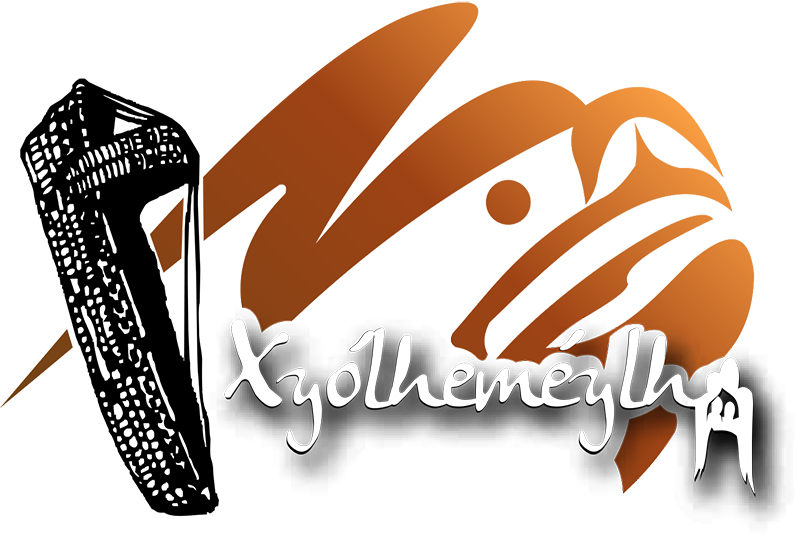Message from the board of directors
Fraser Valley Aboriginal Children & Family Services Society
Sqwélqwel - Xyólheméylh Fall 2021 Newsletter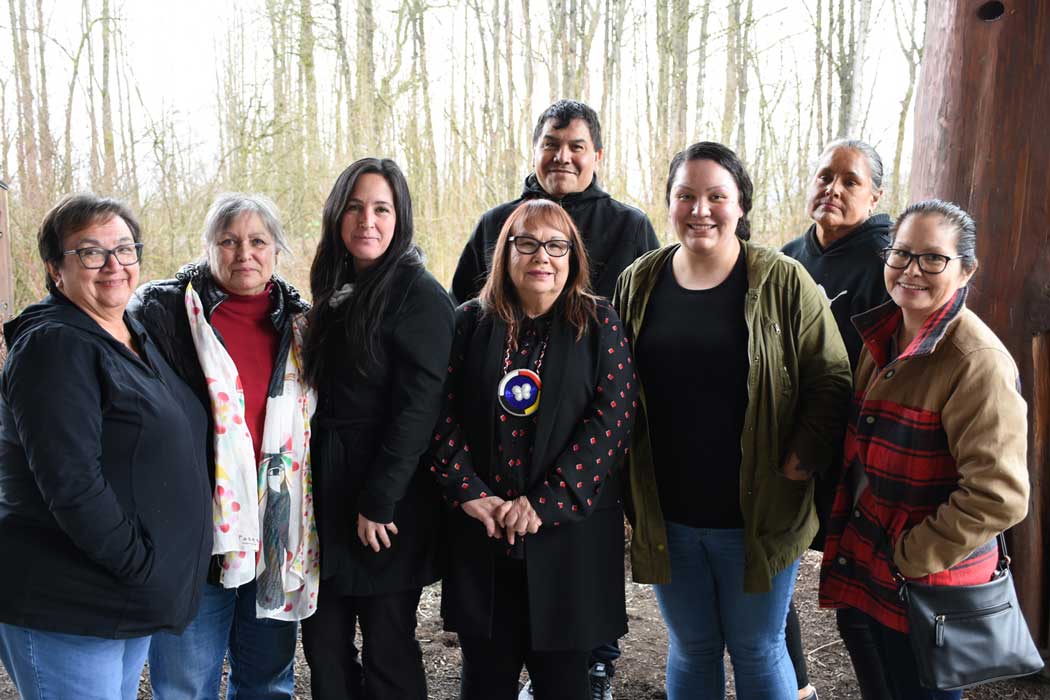
L to R: Helen Joe, Marion Mussell, Wenona Hall, Glenda Campbell, Peter John, Jennifer Janik, Judy Douglass, Paula Olmstead. Missing: Tammy Bartz
Welcome to our fall newsletter. All our Board members hope everyone had a good summer despite the restrictions of this ongoing pandemic that is now into a second autumn and winter. Fall marks the New Year beginning in the third week of October for the Stó:lō First Nations. It is a time where we harvest and preserve what we will need for the winter months, and a time where we begin to slow down and traditionally hold gatherings and celebrations. Once again, this year it unfortunately looks like we will be unable to gather in larger groups.
In August we held an online meeting to complete our Society’s AGM requirements for the year 2019-20. Our next AGM is scheduled for December 10, with a nominations meeting on November 17. We had planned to host the meeting in person but because of the current restrictions which limit indoor gatherings to 10 people, we will be holding the meeting virtually.
We will have four seats on the Board up for renewal. Nomination forms are available by contacting us by phone at: 604-793-3652, or e-mail [email protected] . Anyone who is 18 and over, Indigenous and living on or off reserve in our Geographic Service Area is welcome to submit a nominations form. Should you have a candidate in mind please support them in putting their names and nominations forms forward to the nominations committee. I would like to extend my appreciation to the Board members who have served their terms with dedication and commitment to the work of the Board. I raise my hands to them and the roles they fulfilled representing the agency Board of Directors.
This past September 30 marked the first National Truth and Reconciliation Day, also known as Orange Shirt Day. Our Elders, staff and board members attended numerous events to remember the lives that were lost and honor those who survived the residential schools. There is a statement from the Board in the Truth and Reconciliation Day article below.
In the spirit of the New Year, I wish everyone new beginnings! I hope that everyone can find ways to replenish our spirits this fall so we can continue to work in a good way, with good minds and good hearts.
All my relations,
Marion Mussell
Board President
Truth and Reconciliation Day
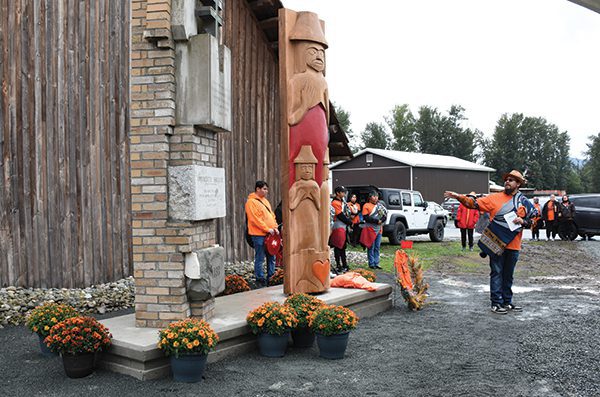
Xyólheméylh staff observed the first Truth and Reconciliation Day, also known as Orange Shirt Day, by attending events across the lower mainland and Fraser Valley. The photo above was taken at the site of the former Coqualeetza residential school in Chilliwack to unveil a carved pole by Yakweakwioose First Nations Chief and artist, Terry Horne (Siyemches). There was a ceremony earlier in the day to commemorate another pole carved by Chief Horne at the site of the former St. Mary’s Residential School on the Pekw’Xe:yles First Nation in Mission. The poles commemorate the children who died and were lost at the schools as well as the survivors and their families. The ceremony also marked the beginning of the important and sacred work of searching for unmarked grave locations in the Fraser Valley.
On the Coqualeetza pole, the children and the woman are all wrapped in blankets. At the one in Mission the children are wearing residential school uniforms. The pole at Coqualeezta stands beside a column made from bricks taken from the old TB hospital, and former residential school, which is to be demolished soon.
The column holds stones from the original buildings and commemorates the occupation of these buildings that led to this site being given back to the Stó:lō people.
Xyólheméylh Board of Directors Message: Truth and Reconciliation Day
Orange Shirt Day was started by Phyllis Webstad to educate people about residential schools and to fight racism and bullying. When Phyllis was a child, she was given a new orange shirt by her grandmother for her first day of school at St. Joseph’s Mission residential school in British Columbia. When Phyllis got to school, they took away her clothes, including her new shirt that she was so proud of. It was never returned.
To Phyllis, the colour orange reminded her of her experiences at residential school and, as she has said, “how my feelings didn’t matter, how no one cared and I felt like I was worth nothing. All of us little children were crying and no one cared.” Orange Shirt Day was started by Phyllis to educate people about residential schools and fight racism and bullying and to emphasize that Every Child Matters.
This year, after the recoveries of children’s remains in unmarked graves at so many of these schools, it became more important than ever that we remember those lives that were lost and honour those who survived. This year for the first time September 30 is designated as a new federal statutory holiday named - Truth and Reconciliation Day. A day set aside for people to learn about and reflect upon the Indian residential school system and the abuses inflicted upon many of the Indigenous children who were legislated to attend these schools across the country. It is a day to learn about and reflect upon the Canadian government’s calculated intention to destroy the language and culture of the First Peoples of Canada.
Between the 1860s and the 1990s, approximately 150,000 Métis, Inuit and First Nations children were removed from their families and placed in residential schools, forced to speak English or French, and disconnected from their culture and traditions. The government’s intention or purpose was to: 'take the Indian out of the child,' and thus solve what was referred to as the Indian problem. 'Indianness' was not to be tolerated; rather it must be eliminated’.
At Xyólheméylh we see firsthand the impact of colonialism and residential schools. We see firsthand the intergenerational pain that resulted. We remember and use ceremony to support the recovery of our lost loved ones, we care about our resilient survivors and will not forget their journey. We also are keenly aware of the resiliency of Indigenous people, and the strength of families.
We encourage you to attend an event(s) in years forward to commemorate the day. We encourage you to reflect upon and honour those who were lost, those who survived, and the families and communities that we serve and who continue to grieve. The Agency will be sending a list of in person and virtual events each year for this special day of commemoration.
We also want to thank you for your hard work, dedication, and commitment to ensuring Every Child Matters.
Xyólheméylh Board of Directors
References
Webstad, Phyllis, Beyond the Orange Shirt Story: A collection of stories from family and friends of Phyllis Webstad before, during, and after their Residential School experiences., Copyright 2021.
Chief Justice Beverley McLachlin in Vancouver June 6, 2013. In a speech on May 28, 2015.
voices of indigenous children & Youth
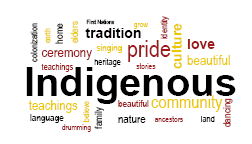
In honour of National Indigenous Peoples Day this past Monday, June 21, Xyólheméylh held its second annual writing and video contest. Xyólheméylh asked British Columbia Indigenous children and youth to express what being Indigenous means to them in writing and/or video. The entries were judged by a panel consisting of Xyólheméylh’s Board of Directors and Elders Advisory Committee, in three categories – ages 5 to 10; ages 11 to 14 and ages 15 to 24.
Children and youth expressed pride in being Indigenous and their connection to nature. They also expressed their sadness about missing and murdered Indigenous women, the impact of residential schools and their grief about the discovery of unmarked graves at the residential school in Kamloops.
“The entries to our ‘What Does Being Indigenous Mean to You’ contest are inspiring. Identity, belonging, learning, spirit connections, and family were themes and highlights in the submissions. To those who submitted a written piece or a video, we, the Board of Directors, acknowledge and thank you for your intelligence, creativity, caring reflections, dancing and showing us who you are and who you aspire to be. Most of all we thank you for inspiring and reminding us to be proud to be Indigenous in all that we do. We are grateful to you as Indigenous youth for sharing your understanding and impressive voices with so many,” said Marion Mussell, President of the Xyólheméylh Board of Directors.
The following is by Linden Hale, 11 years old, who won second prize in his age category.
My name is Linden and I am proud to be Métis
There is no one else I would rather be
I am related to Louis Riel
He fought for our Métis rights, now that’s a story to tell
We are proud of our flower work beading
People travelled across the land because it was something they were needing
We weaved very important sashes
It was used for washing, sewing, keeping warm and as a bandage when we had gashes
We were known as the voyageurs who travelled down rivers
We helped create the provinces, built forts for the fur trade and we are excellent jiggers
Our homeland is the Red River Settlement of Manitoba
To be Métis you have to trace your ancestry to our homeland so you can’t be from other provinces such as Nova Scotia
Many Métis children grew up not knowing their history and culture
Colonialism preying on them like a vulture
I know how to overcome this because I have the key
I know who I am and I am proud to be Métis.
setting the table
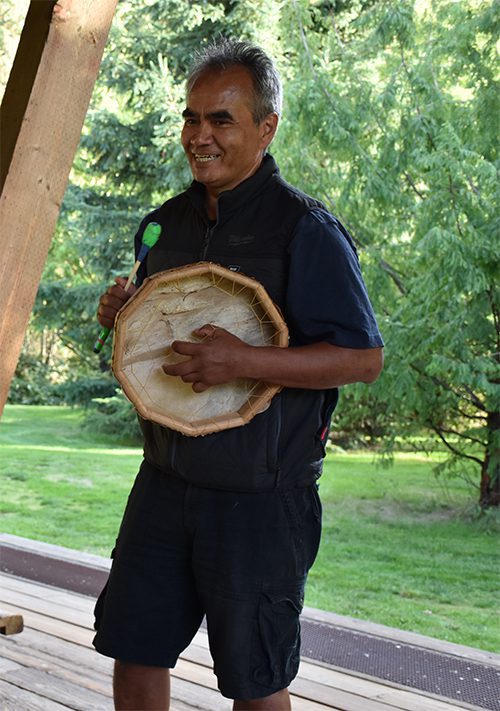
After not being able to gather for our annual summer camps, Xyólheméylh decided to hold a series of smaller get togethers, limited to 50 people outdoors, this summer in Abbotsford and Chilliwack. The events were an opportunity for Elders and youth to gather, share a meal and teachings. The photo above is of Keith Point, Community Engagement Worker with Xyólheméylh.
Message from Executive Leadership Team
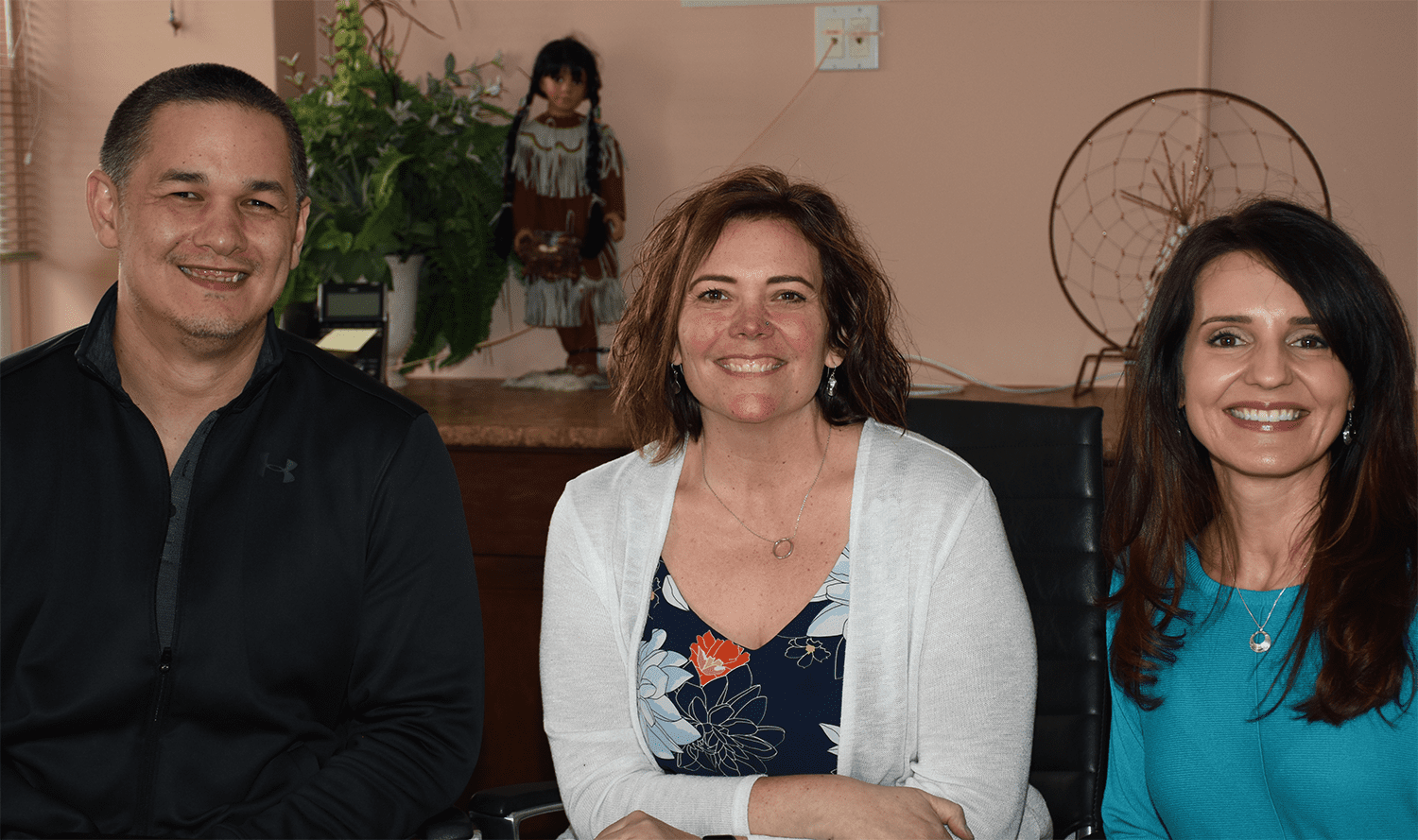
We want to take the time to update you on some important things happening at the agency😊
Caregiver Appreciation: We want to honor and thank our caregiver support parents for all they do for the children, youth, and families our agency serves. October was caregiver appreciation month and staff were planning an honoring ceremony in the Longhouse. With the 4th wave of covid and following the current health orders, the team have put together appreciation gifts that they are being delivered in the month of November. Our caregiver support parents are an integral part of the agency, and we value all that they do.
Training: The training department is busy bringing in different trainings to help our staff and caregiver support parents. Historical Impacts Training has started in person again, and we receive incredible feedback of the learnings and knowledge gained in this training series.
Elders Advisory Committee and Elders for special initiatives: Our Elders Advisory Committee is instrumental in the agency providing cultural guidance, teachings, providing support in family meetings, and debriefings with staff. They are also involved in a number of initiatives we will report out on in our upcoming newsletters in 2022. We're actively recruiting more Elders, so if you or someone you know is interested in learning about becoming an Elder for the agency, please send an email to [email protected] or call Jill Hammond at 604-798-4415.
Board Cultural Advisory Committee: Our Board Cultural Advisory including some of our Elders Advisory members are busy working on an agency cultural protocol. The protocol involves training videos that are currently underway. This committee also recommended a number of onboarding videos for training for staff that are also in process.
Housing: Housing continues to be a major issue our agency is dealing with. Many of our families are racially profiled and not shown places to rent. We are actively involved in several meetings to try to find ways to find solutions to this issue that impacts so many.
Facilities: Renovations are underway on Spadina Avenue next to the Pharmasave in Chilliwack. This is space we are so grateful to move into this coming January 2022. Renovations are also underway in Mission for an office we will be moving into in 2022. This means that we will no longer have staff in the former residential schools in Stó:lō Territory.
Substantive Equality and Inequity of Services: As an agency we are doing our due diligence with advocating to the province on substantive equality and inequity of services to the children, youth and families residing in the urban centers in the region we serve. We are working with our Indigenous partners to work on a full analysis on disparities and inequities in preventative services relating to the social determinants of health. We will be doing a full analysis of the current situation and needs in our territory, to truly understand the needs of those we are collectively serving, with our goal to break silos and wrap true indigenous service and program delivery around those we serve.
Out of Care: Our out of care stats, meaning children and youth who are out of the parental home are with family, in community and connected to their culture is up 42% from this time last year. We are proud of how the families, elders, staff, and communities are coming together to come up with plans to prevent children and youth from going into stranger care.
Agency Vaccine Policy: Many people have been asking what our agency is doing around a vaccine policy. The Provincial and Federal Governments have policies in place where vaccines are mandatory for staff. Currently we are following the current public and Fraser health orders and doing everything to keep everyone safe. As these policies and orders continue to change, we will be consulting with both labor relations and human rights lawyers before we make decisions on any vaccine policies.
Honoring our Veterans: National Aboriginal Veterans Day is on November 8, and is a day to honor and commemorate the contributions of Indigenous veterans in the First and Second World Wars, as well as the Korean War. With Remembrance Day on November 11, we remember and commemorate all the veterans who fought for our country.
This week let’s all raise our hands to all the brave men and women who served to make our country what it is today!
We wish everyone a great rest of your fall as we move into the winter season.
Message from Penny Trites, Executive director staff and community relations
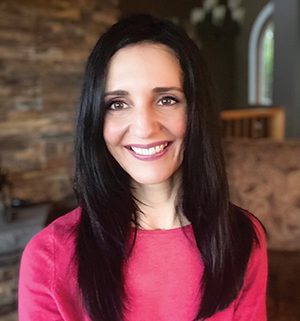
“For the Love of Our Children”
It’s hard to believe the fall season is among us already. I’m not sure if it is just me, but this year has seemed to fly by so quickly. Our Elders say Fall is the season to “let go of what is not important to us” as we see Mother Earth letting go. This year I notice more beauty as the leaves change color and fall to the ground.
Just after the Fall season started, we had a day of commemoration and reflection, National Truth and Reconciliation Day. Many staff in our agency attended the ceremonies at St. Mary’s and Coqualeetza Grounds where Stó:lō leaders unveiled a house post in each location to honor the children whose lives were lost and the survivors and their families. I interviewed Chief Terry Horne for our Summer newsletter where he talked about creating the house posts as a way to give back. Seeing his creations, hearing the meaning behind the carvings, and knowing the impact it has is truly amazing!
After the ceremonies, my son and I headed to Vancouver for the premier viewing of the documentary “For Love”, a film written and produced by Mary Teegee and Matt Smiley, narrated by Shania Twain, with executive producers Cindy Blackstock and Warner Adam. The website for the film is: www.forlovefilm.com. This documentary shares hard truths and celebrates Indigenous strength and resilience. Mary Teegee, among many leadership roles she holds, is the voice of the Indigenous Directors Forum for all the Delegated Aboriginal Agencies in the Province. She is a great support to our agency, and we hold her in high regard. At the Premier viewing, she talked about why she wanted to produce this documentary. Her words echoed what I have heard consistently from many of our Sesiyomelh Matriarchs and Elders over the past 23 years of my career: “Everything we do is for the love of our children.”
I watched my teenage son listening intently to the documentary with tears in his eyes, and on the drive home I heard the words, “Mom now I know why you do what you do”. Those words will stay in my heart forever. It still makes me tear up a little. I truly believe anyone who watches this documentary will gain awareness and understanding and know in their hearts and minds that things need to change.
I ask myself and all those reading, what can each of us do now as individuals, in our families, and in the work we do to be a champion of Change? …
Remembering everything we do is “For the Love of our children.”
All My Relations
Penny
Meet a caregiver: Nikki hawes
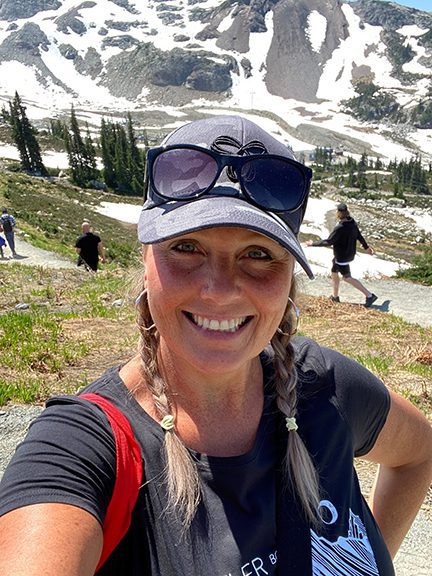
Nikki Hawes' enthusiasm for being a support parent is infectious. “I’ve always wanted to have a huge family,” she says. Coming from a huge family herself of Irish and French Canadian descent, she says she “grew up with a heart for community, caring for people and doing your best for your neighbour.”
Nikki has five children of her own, three of whom who are teenagers and young adults who are still at home. After being a relief and respite worker with Xyólheméylh for a number of years, she decided three years ago to become a foster parent and now has five more children in care in her home – two five-year olds, one four-year old, a 22-month old and an 18-month old. “Five under five,” she laughs.
Her life has been dedicated to helping others and having what she calls an open-door policy. She did a Bachelor of Arts in Child and Youth Care, ran a daycare, was an international homestay parent, a special education support worker and taught life skills to youth at Stó:lō Youth Centre.
It was the latter job that especially made her realize the importance of culture for Indigenous youth. “I was so blown away seeing them connect to their identity, culture and community and the difference it made by discovering who they were and who their ancestors were. They were free to fly,” says Nikki. She ensures the children in her care are surrounded by Indigenous culture.
Nikki believes strongly that we need to add to children’s families, not take away, so she feels it’s important to build relationships with the bio families of the children she is caring for, and to maintain relationships with the child after they have reunified with their families. She thinks of all the families of the children as one big extended family that she is a member of, and that she is there to be supportive and keep connections going.
“I want our relationships to be natural and genuine,” she says. “I want to keep connections going, so we all feel like family. I just want us to be on the same team – Team Child,” says Nikki.
New feature: Si:yólexwe teachings
Meet an elder: amy victor (St’enilh:ot)
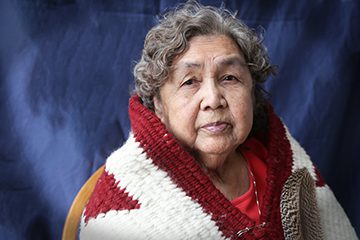
Amy has always been involved in trying to make things better for Indigenous people. She wanted to make things better for her kids than it was for her and her parents. “I’m still trying to make a difference. Sometimes I think I’m fighting a losing battle, says Amy, who acknowledges there is still much more to do.
Amy says another devastating impact of residential schools was that survivors learned to be emotionally disconnected. “In residential school we were taught not to feel, not to talk and not to cry,” says Amy. For many years, Amy has worked in the justice system and is now an Elder at the federal penitentiary for women in Abbotsford. Of the women she works with, she says they are also victims of the residential schools and the legacy of addiction and abuse. “They don’t know how to handle their emotions,” says Amy, noting that Indigenous people did not have jails pre-contact. The women are 3rd and 4th generation residential school survivors even though they did not attend; they still carry the stigma. Amy is passionate about reforming the justice system and the paternalistic approach of colonialism. She is involved in a project with the agency to establish an alternative justice system for Indigenous people.
Amy quit school at age 15 and took vocational training, eventually working for the provincial health department. She married and had five children; three sons and two daughters. Three of Amy’s sons passed away, and Amy believes it is because they were unable to share their issues and they self-medicated. Amy feels the Longhouse people with the drumming and singing is what got her through it. Amy has 13 grandchildren. She says she didn’t really get in touch with her culture and spirituality until she was 50 years old, when she was initiated into the Longhouse.
Amy says one of her greatest learnings is not to put too much emphasis on monetary things. “The quest for money weakens a person’s spirit,” says Amy. “Respect isn’t given to how much you accumulate, or how big your bank account is, it’s given for how much you share.”
It was Amy’s desire and passion to make things better for Indigenous people that led her to get involved with Xyólheméylh. Prior to joining the agency she said she had heard negative comments about how the agency was still taking kids away from families. “So rather than sitting on the sidelines, I might as well see what I can contribute,” says Amy. “The ministry still has veto power and until we get a system that meets or beats their system, we will have the same old, same old. But the agency is working towards that.”
Amy says she knows firsthand that there is strength in families and that as an agency we need to trust that. She said she realized this when her much loved older sister passed. Amy really missed her and didn’t know how she would live without her. But she says when she went to the memorial service and saw her extended family all lined up, she knew she wasn’t alone, that her family would give her strength to get through difficult times. “We were standing together,” says Amy.
Medicine Teachings with the Elders
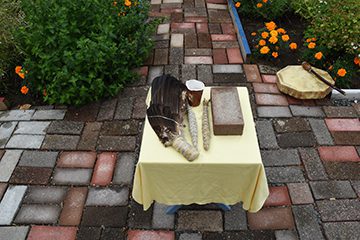
The Four Sacred Medicines
The four sacred medicines are tobacco, sage, sweetgrass and cedar. These medicines are associated with the four directions on the medicine wheel and are all “gifts from Mother Earth,” says Maria Reed, Xyólheméylh Elder.
Sage removes negativity and used in ceremony for smudging. Sage is used for releasing what is troubling the mind and for removing negative energy. It is also used for cleansing homes and sacred items. Indigenous ancestors also used different varieties of sage for medicinal purposes.
Cedar, or the tall silent ones, as Maria calls them, gives us clothing, shelter, canoes, medicine and oxygen to breath. It is used in ceremonies for protection. In Stó:lō ceremonies, cedar covers the floor of the Longhouse. There are also protocols that go with collecting cedar bark. The people responsible for collecting it have been taught by an Elder and know how and when to do this without harming the tree and they understand the protocols of returning it to nature after it is used in ceremonies.
“Sweetgrass brings positivity, and makes your spirit happy. Every piece of sweetgrass is put into the braid with a prayer, so a braid is full of good thoughts, good medicine and prayer,” says Maria. Sweetgrass also has healing properties. For example, sweetgrass can be used to help with colds, or sinus issues and can be drank as a tea to help with coughing.
“Tobacco was the first medicine given to us from Creator,” says Maria. “It was given to us so we could communicate with the spirit world. When you burn it, the smoke goes up with your prayers to the creator. When you burn it with the other three medicines, the good smoke from the tobacco takes it to the creator.”
Ask an Elder: gil poitras explains smudging
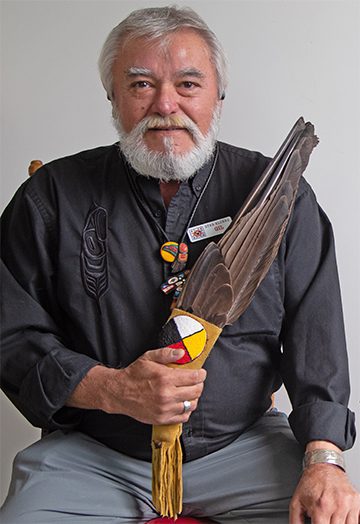
In this regular column, Xyólheméylh Elders answer questions from staff and the public. If you want to ask an Elder a question, please send it to [email protected]. Here is the question for the summer edition of the newsletter:
Question: Can you explain the practice of smudging?
View Gil's answer in this video:
Community Profile: Meet Jack Miller, Senior Executive Director of the Ministry of Children & Family, Métis Nation British Columbia
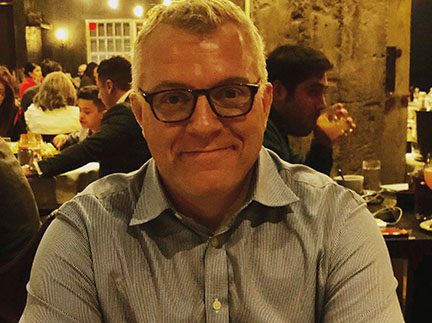
Métis Nation represents 90,000 Métis people in BC and 38 chartered communities across the province. Their vision is to build a proud, self-governing, sustainable Nation in recognition of the Inherent Rights of Métis citizens. Jack Miller is their Senior Executive Director of the Ministry of Children and Family, and his role is to regain jurisdiction over children from the provincial government and to create an internal system from scratch. The ultimate goal is to create an independent governing body with sole jurisdiction over the nations’ children.
Jack grew up in the Midwest of the United States and is of Cherokee descent. He spent every weekend going to pow wows as his mother was a big believer in knowing their Indigenous culture, but in many ways, he says his upbringing was typical of many in the Midwest. Jack met his wife, who is from Quebec, when they were both living in New York City. A psychologist by training, with a specialty in trauma and crisis, Jack was also in the military for a time. Approximately three years ago, Jack and his wife decided to move to BC, where she has family. He has been with MNBC for almost one year.
Jack’s greatest revelation, since joining MNBC, has been realizing the immense amount of wisdom the Elders have. They have guided him in the rules of the buffalo hunt, which he tries to implement in everything he does with MNBC – that before you move forward and embark on a direction, everyone must be consulted. He points out that it is a very European and colonial idea that one person’s knowledge would supersede the collective. “It always starts with the Elders,” says Jack.
“Ultimately the goal is reunification with our children, healthy homes, financial and educational equity for our children and citizens,” Jack says. For example, currently Jordan’s Principle, which aims to eliminate service delays for First Nations children, does not apply to Métis children. Jack wants that to change. He is optimistic in the direction they’re heading and says they have made a lot of progress in the last year.
Other initiatives include establishing an internship network with Métis high school and university students. This program will also ensure availability of future professionals, especially in remote areas. Another initiative has been establishing a panel of Elders who are involved with preventative care and work closely with struggling families.
One of the things he wants people to understand is that Métis people are not just a mix of any people, they are a distinct culture of people born out of distinct ancestry and distinct socio-economic influences. He recommends the book The Northwest is our Mother, the Story of Louis Riel’s People, the Metis Nation by Jean Teillet, as an excellent resource to understanding the Métis Nation.
Jack says that MNBC is very honoured and grateful that Xyólheméylh and Stó:lō First Nation have taken care of their children for as long as they have. “As we move forward, we want to walk hand in hand with as many of our partners as possible and to engage in the healing together,” says Jack.”
Meet a FVACFSS Board Member: Marion Mussell
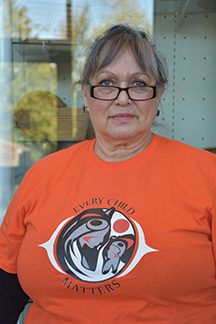
I am originally from Onyota’a:ka (Oneida Nation of the Thames) which is one of the six nations of the Haudenosuanee (Iroquois Confederacy). I had the good fortune to spend my early years in the home of my grandparents surrounded by many relatives. My relatives ensured I was raised in the matriarchal teachings of my Oneida culture: positive foundational teachings about family, connected-ness, identity and responsibility. Our family was supported by my grandparent’s farm and I spent many happy hours by my Grandfather’s side as he worked to provide and care for us.
While working in Ottawa for the National Indian Brotherhood, I met a Stó:lō man and the rest is history! I moved to BC, married that Stól:ō man, became a member of the Sqwá First Nation, and have now resided in Stó:lō territory for almost 50 years. During those years, I have made friends and been part of many family and community circles, thus, I have learned much about Stó:lō life styles and ways of being. My life has been enriched by all those experiences and as the years have passed I feel accepted and connected.
My most valued education has been gained from my family and as an adult working in community in health and education. I also completed a Bachelor of Arts at UBC and a Master’s degree in Education at SFU. These additional educational tools assist me in walking in both worlds.
I joined the Board of Directors in 2015 and am now in my second term. At this time, I am the President of the Board of Directors and serve on several committees. I accepted the nomination to be on the Board because I felt it was a way to give back. I also had the time to be actively involved in the Board’s work of governance and oversight. The Board of Directors can influence policies and guidelines that focus on service delivery and building positive working relationships with communities and families. I believe the guiding principles behind Xyólheméylh Board goals must support our children, youth and families when help is needed; that the operations of Xyólheméylh must operate within the context of culture, with paramount regard for the circumstances of our children, youth, parents and the caregivers. I believe in the strength of families, community and guidance from Elders.
During the time I have been privileged to be a part of the Board, we have made changes. The Board has
- established an Executive Leadership Team
- restructured the agency to better support Stó:lō communities,
- increased the focus on preservation of families, and
- enhanced relationships with our communities and partners.
Much work has been done and yet there is more work to do. There will be transformative changes because of Bill C92 which became law in 2020, there is much to learn and understand how this law will impact programs and service delivery for Indigenous children and families.
I would like you to know that I enjoy conversation and working together and sharing what I know. I thank the communities for placing me in a role of leadership.
family services team
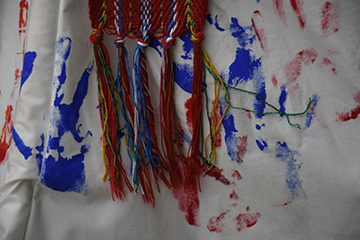
The Family Service Team works collaboratively with families and community partners to develop strategies so that children can remain safely with their families and to change the legacy of Indigenous children growing up in care, disconnected from family, culture and community.
The basket has responsibility for children 0 to 12 years of age, although they do not break up sibling groups so there are some youth that also fall under their responsibility. They are made up of approximately 37 staff who are Delegated Social Workers, Family Enhancement Workers, Family Preservation Counsellors and Family Cultural Connections Workers.
They determine barriers to children remaining in homes and develop comprehensive and holistic plans to support children and families staying together. That can mean providing practical hands-on support for things such as conflict resolution, life and parenting skills. It can also mean healing circles with Elders, or intensive therapeutic help. At the heart of this is collaborative practice meetings where staff work collaboratively with the family to find solutions to problems.
Another goal of the team is to increase the use of out of care options to avoid stranger care and keep children with extended family. The team is also responsible for guardianship when all the avenues to out of care options are exhausted.
With a focus on ensuring that children remain or return to their families, the teams have been a part of many success stories. Some of these successes involve working with fathers who have come forward when children are unable to remain with their mothers. The teams work hard to engage family (many in other provinces), supporting children to travel to visit paternal families in other provinces and supporting those families to travel to BC in order to develop relationships with their children. As a result, children who have been unable to remain with their mothers and who have been placed with foster families, have been able to leave foster care in order to live with their fathers and develop relationships with their paternal families and Indigenous communities. When asked about how he was adjusting to his new role as sole caregiver, one father states that the pros far outweigh the cons, and he would not change it for anything.
A priority during the 2020-21 fiscal year and ongoing into the spring and summer of 2021 was hiring staff for the growing basket. The team is headed by Allison Hamilton who joined in March 2021 from the Ministry of Child and Family Development. Allison joined Xyólheméylh because she had a desire to work more closely with teams in order to really implement the practice shifts called for by the new federal legislation, An Act Respecting First Nations, Inuit and Metis Children, Youth and Families, more quickly than she felt was possible with such a large organization as the Ministry. She had come to a point in her career where she wanted to genuinely do this work differently and to work in an agency that truly recognizes the value of culture, tradition, language and connection to family and community as being paramount in raising healthy and happy children. Another reason Allison wanted to join the agency was the ability to work with Elders and to learn about doing this work from their perspective. “I am very appreciative of the Elders and respect the comfort they bring to families,” says Allison. She also appreciates the role they play in supporting staff and teaching them about traditional ways of being and of caring for children as well as each other.
For Allison another priority is ensuring staff have a really clear understanding of policies, so they can be used to work through practice challenges and used in the most remedial way possible. One of these challenges is to be clearer about the various out-of-care placement options. Because she has a lot of new staff, she wants to ensure they have a good foundation and begin with the belief that families and communities are the best places for children to be raised. She is passionate about team building, mentoring and providing a “safe to fail” work environment where staff recognize that mistakes are part of being human and we need to learn from them rather than hide from them, while also holding each other accountable.
Allison says her teams are excited to do things in a good way and to learn. “They are very good at pulling together, helping each other, and raising each other up. There is a feeling that each family that we serve belongs to all of us,” says Allison.
visions and voices
Summer Update
Visions & Voices, our youth advisory group, had a busy summer organizing covid-safe activities for youth in care. On August 18 they held a virtual bingo tournament with 14 youth attending and prizes that included gift cards and craft kits as well as branded Visions & Voices swag such as sweat pants, bags, and bottles. The event went so well, they decided to hold a bingo tournament for staff in September. Twenty-five staff attended and had a great time winning swag and gift cards, as well learning more about the advisory group.
Nothing says late summer in the Fraser Valley like sunflowers. Throughout the summer, over 120 families and community members participated in the Visions and Voices Sunflower Contest. The participants received Sunflower kits, with fun facts, growing tips, Giant Mongolian and regular sunflower seeds. Participants sent us their pictures and received prizes such as gift cards, craft kits, cultural books and blankets.
Upcoming Events
This fall the Visions and Voices youth are organizing a number of activities. They will be organizing their annual forum this November and are figuring out a plan while following public health orders. The Committee are working hard to organize and create a fun and safe event for Indigenous youth. More details to come!
Due to the success of the youth and staff virtual bingo tournaments, the Visions and Voices youth are organizing an event in October for all Indigenous Elders as well as a virtual event in November for Xyólheméylh caregivers.
Also in the works is a youth tie dye night where we will create some new Visions & Voices t-shirts. Stay tuned for more info.
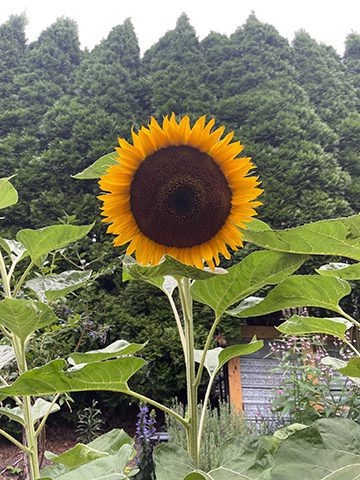
Seasonal Recipe: Paula Olmstead's Bannock Recipe
Xyólheméylh Board Member Paula Olmstead recently shared how to make Bannock her way in a Youtube video. Check out the video here: https://www.youtube.com/watch?v=uDPlrT0mpIQ&t=194s
Or follow these directions below or do both.
This recipe makes 8 pieces of bannock
Ingredients
- Vegetable oil
- 3 cups all purpose flour
- 2 tsp. baking powder
- ¾ tsp. salt
- 2 cups lukewarm water
Directions
Pour the vegetable oil in a pan so it covers the pan ¼ inch deep. Preheat oil on medium high heat.
Mix the 2 cups of the all purpose flour with baking powder and salt with the lukewarm water. Do not mix too much or you will have tough Bannock. You can use sugar to sweeten but Paula doesn’t use it in this recipe.
Add the remaining cup of flour to a separate dish. Scoop out some of the wet mixture (about the size of your palm) into the dry flour and roll it around so it’s coated. Do this with the remaining mixture – you will probably need to do this in two batches so as not to overcrowd the Bannocks in the oil.
Test the temperature of the oil with a small amount of the mixture. If it starts sizzling, it is ready. Place the doughy balls into the oil and cook approximately 2 minutes per side.
When done to a golden brown colour, place on paper towels to remove excess oil.
Enjoy!
help us spread holiday cheer this christmas!
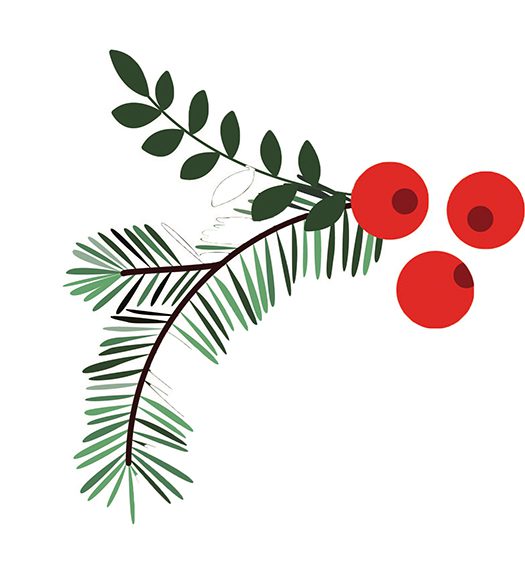
Each year it is our goal to help spread holiday joy by providing hampers, including food, toys and gifts to the families and children/youth who receive services through our Agency. For many of our families these hampers are the only way that they will be able to enjoy a true Christmas meal and have gifts under the tree. This year our goal is to provide Christmas hampers for 100 families. I am respectfully inviting you or your organization to consider participating to make Christmas a little more special for a family in your community.
Due to COVID-19 restrictions, we are requesting cash donations and gift cards rather than actual hampers. We will then use the donations to put together hampers for each family.
Should you or your organization be able to support a Christmas hamper in any way please contact Krystle Sallis at 604-858-0113 with any questions or to discuss your contribution or via email [email protected].
In order to notify hamper recipients in a timely manner your commitment response is appreciated before Friday, November 19, 2021.
If a monetary donation in made please make a cheque payable to “Fraser Valley Aboriginal Children and Family Services Society”. A taxable donation receipt will be issued for donations over $25. Thank you in advance for your support to deserving families and children!
fvacfss complaint resolution
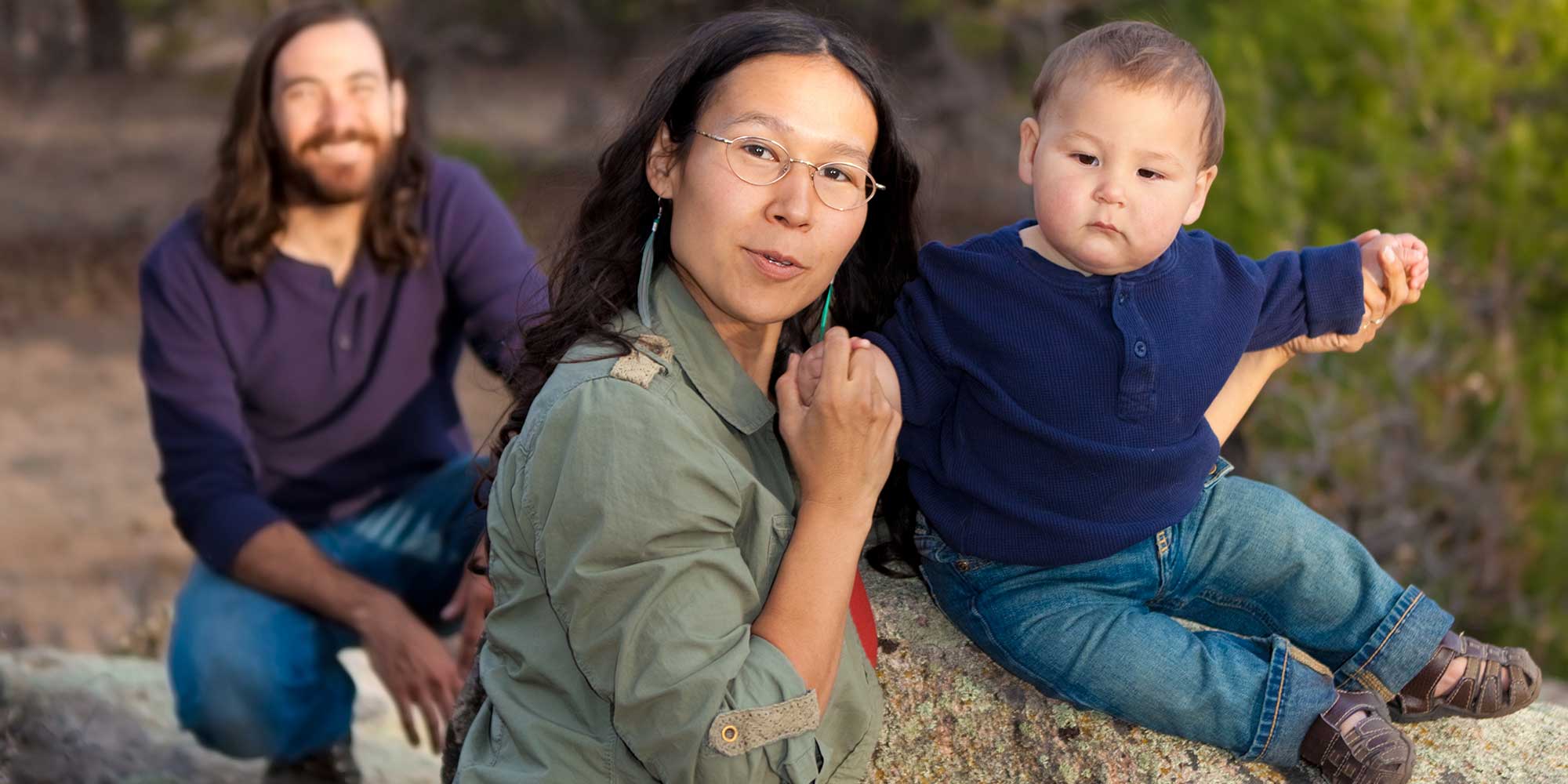
In the course of working together, disagreements may arise between caregivers and our FVACFSS staff members. Most concerns are addressed directly by staff without a formal complaint being made, however, when this is not possible, the FVACFSS Complaints Resolution Process provides a mechanism for caregivers to express their concerns and for the concerns to be responded to in a respectful, empowering and fair manner. The FVACFSS Complaints Resolution Process is accessible if you feel our staff are not treating you fairly, if you believe staff are not working within legislation and policy, if you feel a child in your home’s rights are not being promoted and for other concerns. The FVACFSS Complaints Resolution Process is not able to address issues with contracts, assessment and approval of specialized levels designation, quality of care reviews or investigations into family care homes.
FVACFSS is committed to ensuring that complaints are received in a positive manner so that our caregivers do not experience any negative consequences for making a complaint. Caregivers who engage in the Complaints Resolution Process are supported by the Client Complaints Resolution Analyst throughout the process, and are actively involved with FVACFSS staff to address their concerns in a solution focused process, which encourages problem solving and flexibility. A robust complaints process encourages transparency, accountability and continuous quality improvement.
To make a complaint or if you have questions about the complaint process, please call 604-858-0113 and ask to speak to Tina Ion, who is the FVACFSS Client Complaint Resolution Analyst.
FVACFSS Annual General Meeting
The Annual General Meeting (AGM) of the Fraser Valley Aboriginal Children and Family Services Society (FVACFSS) will take place via the onefeather online platform on Friday, December 10, 2021 at 1:00 PM, PST.
Members may register for the online AGM by e-mailing us at [email protected] prior to Wednesday, December 1st. In your e-mail please include: your name, membership number (included on your new membership card), mailing address, and e-mail address. We will reply within 48 hours to confirm that we received your e-mail. On Wednesday, December 8th we will e-mail all registered members the login information and password to participate in the online meeting.
If you are a member and do not have an e-mail address, you may phone us at ph: 604-793-3652 and leave a voice message with your name, membership number and a phone number. We will reply within 48 hours to discuss options for how you may attend the online meeting.
If you have general questions about the AGM process or would like us to mail you an AGM package, please contact us by phone at ph: 604-793-3652, or e-mail [email protected] and leave us a message with your contact information, so we can reply.
